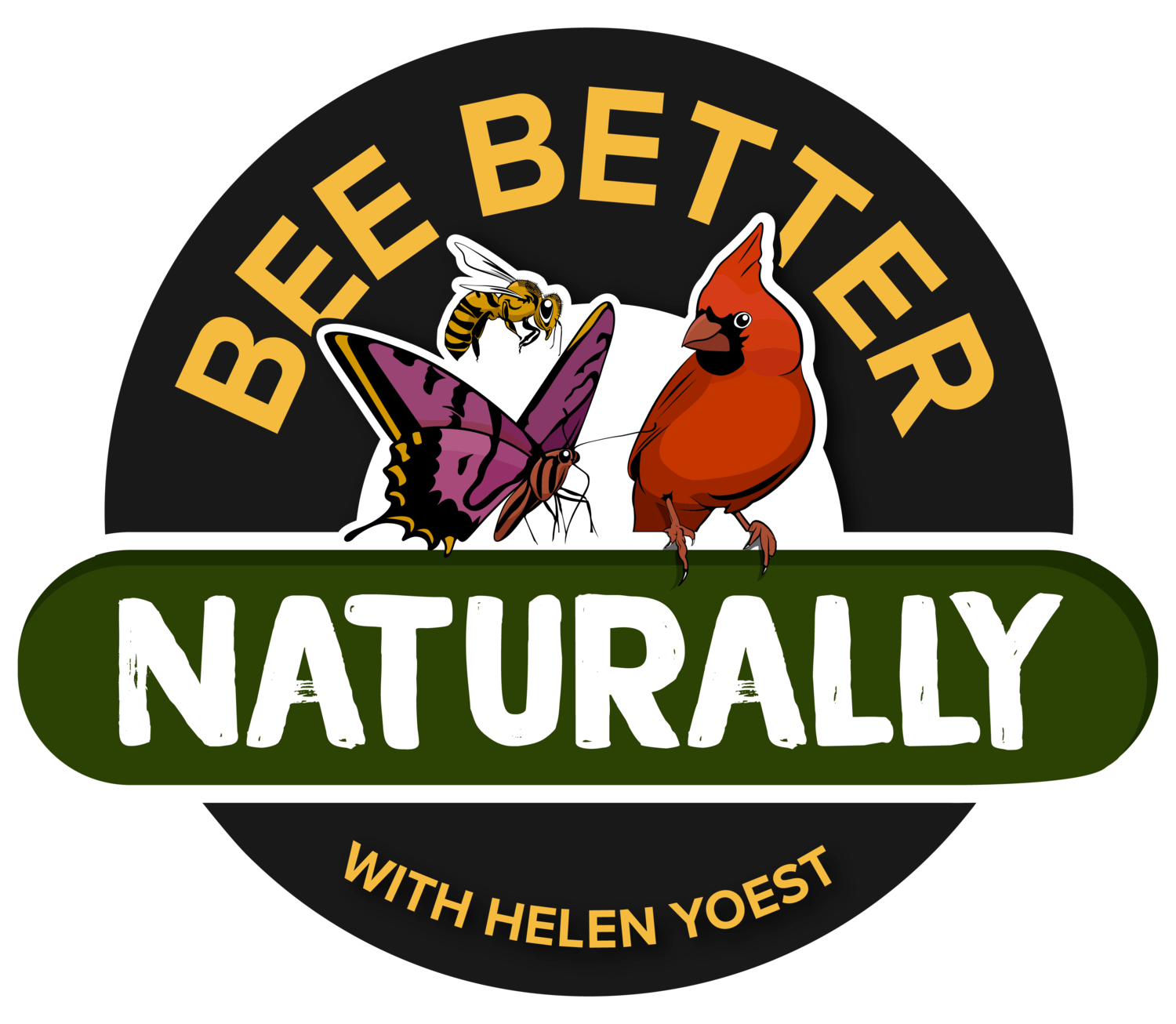Nature bestows upon us a great gift each fall, festive color for us, and a windfall for the wildlife. Let's celebrate and #leavetheleaves! Click to Tweet!!!
Too often we forget the big picture. Once the leaves fall, and the color-glory is over, it’s just beginning for the life underneath. Let's remember the benefits those fallen leaves provide the soil and foraging birds, and food, cover, water, and a place to raise their young for the birds, bees, and butterflies.
FOOD, COVER, WATER, AND A PLACE TO RAISE THEIR YOUNG EVEN COME IN LEAVES!
Leaf litter provides food-web essentials for toads, frogs, and lizards. Sheltered in the leaf litter includes food and shelter for earthworms, millipedes, pill bugs, as well as eggs and larvae of insects and spider. Beneath the litter, water is conserved and habitats are formed for urban habitat life to raise their young.
Did you know, the majority of butterflies and moths overwinter in the landscape as an egg, caterpillar, chrysalis, or adult?
In our area of Eco-region 231 the great spangled fritillary butterfly and wooly bear moth caterpillars tuck themselves into a pile of leaves for protection from cold weather and predators.
Red-banded hairstreak butterfly lays their eggs on fallen oak leaves, which become the first food of the caterpillars when they emerge.
Luna moths and swallowtail butterflies mimic leaves on the ground.
Beyond butterflies, bumble bees also rely on leaf litter for protection. At the end of summer, mated queen bumble bees burrow only an inch or two into the earth to hibernate for winter. An extra thick layer of leaves is welcome protection.
As the leaves break down, they enrich the soil, provide a down-like comforter for small critters, and benefit at least 120 bird species nationwide.
Throughout the fall and winter season, birds scratch through the leaves looking for and finding food, hopefully. We can help by leaving the leaves. Without this essential food sources, the birds are more likely to leave your garden in search of protein elsewhere.
Leaf litter fosters living soils with vast numbers of beneficial soil bacteria, fungi, and nematodes working in concert to build healthy loam and to nourish plants.
As much as possible, let nature provide your plant's needs. We at Bee Better Naturally do not use of pesticides or fertilizers. With regards to pesticides, they kill the beneficial bugs as well as the garden pests. Let nature take her course.
With regards to fertilizers, likely your urban habitat is planted with plants that support the food web. Adding fertilizers can cause unnecessarily faster growth than if plants are allowed to benefit from the food nature provides. This increased growth-rate causes stress on plants, and a reliance on artificial stimulation. Our goal is for birds, and other urban habitat wildlife feed on pest for protein and the leaves will break down providing nutrients to the soil
As aesthetic humans, we may not want our entire yard covered in leaf litter; and resulting in the leaves blowing throughout the neighborhood.
Too many leaves can smother lawns and perennials. Given urban habitats have to respect all those around us, Bee Better Naturally recommends raking excessive leaves to an unused area of the yard or compost. In addition, Bee Better Naturally does not recommend grinding or chopping leaves with a chipper, mower, or weed eater, either. Why? While we can’t point to a study reporting the loss of life in the reduction in the size of the leaf litter, Bee Better Naturally errors on the side of logic. It only seems natural we would also be killing the wildlife within those leaves we’re trying to preserve.
If you have a surplus of leaves, bag them and share with other like-minded thinkers who care about the environment.
As we think of putting our leaf litter to good use, we should be aware that in a cultivated urban habitat, the litter from diseased plants should not be used; Disposed diseased foliage entirely.
Bee Better Naturally believes every day is a new beginning. Let us look at our leaves in a whole new light and begin today by enriching our soil and saving the life our habitats desperately need.




